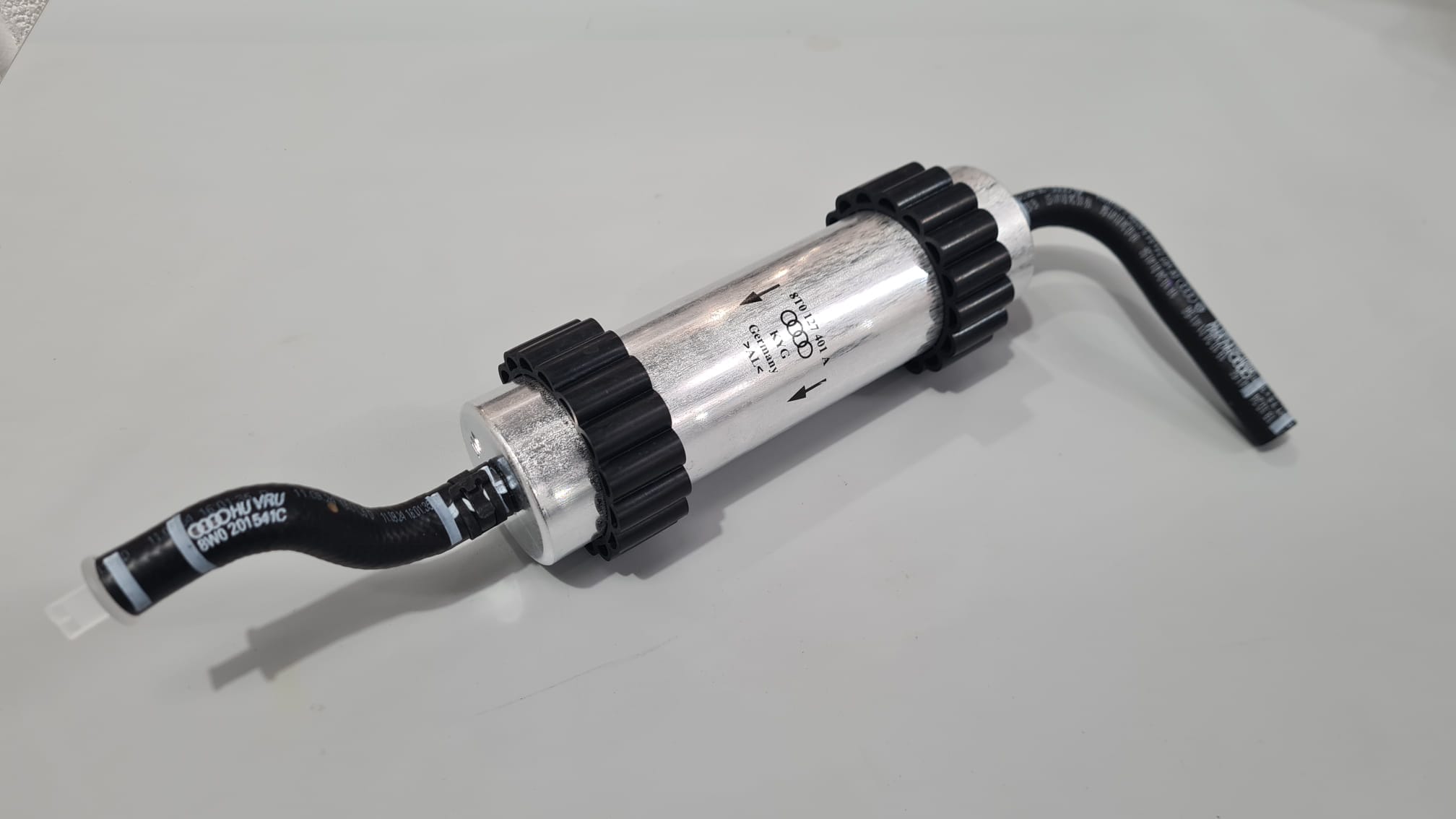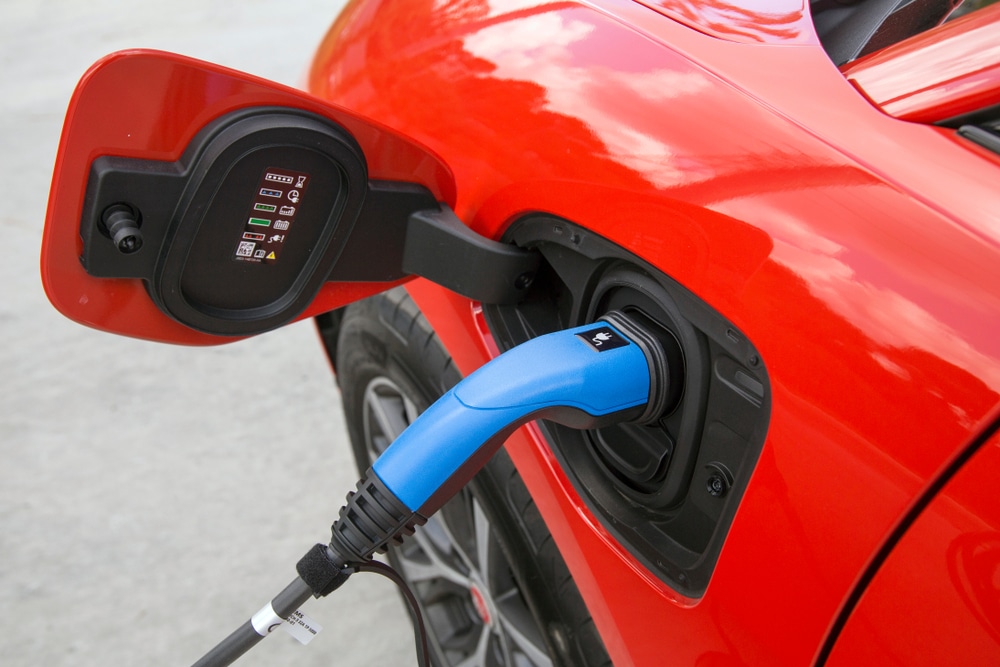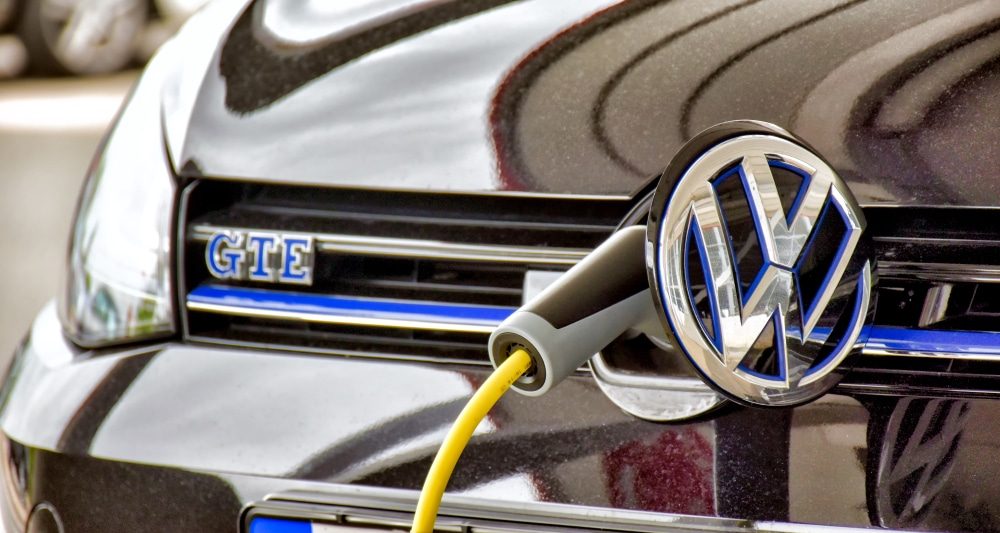Diesel Fuel Filter
Could a small filter really make the difference between a reliable engine and expensive repair bills?
Your vehicle’s diesel fuel filter shields critical parts of your diesel fuel system, such as the injectors and the high-pressure pump, from dirt and water in the fuel. If it’s not replaced, you could soon experience poor performance, breakdowns, or major damage.
This blog explains where the diesel fuel filter is located, how it works, the issues that appear when maintenance is skipped, and why replacing it on schedule matters.
When was your last diesel fuel filter replacement?
Book your diesel car service at Smith’s of London, Croydon today on 020 8674 3377.
Locating the diesel fuel filter
The diesel fuel filter (part 4 in the diagram) is typically mounted on the low-pressure line between the fuel tank and the high-pressure pump.
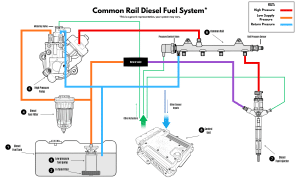
In many modern designs, you’ll find it fitted in the engine bay for easier servicing.
Many modern diesel fuel systems also include a coarse in-tank strainer (part 2), which prevents larger debris from entering the fuel line.
Read our Diesel Fuel System Guide for a full explanation of how each component works together.
What the diesel fuel filter does
The diesel fuel filter has two essential jobs within your vehicle’s fuel system:
- Removing moisture: Diesel naturally contains small amounts of water. Your vehicle’s diesel fuel filter separates it before it can reach more critical parts of the system, reducing the risk of corrosion and protecting vital components.
- Filtering debris: The filter removes particles and impurities carried in the diesel before they travel through the system, causing damage to the injectors or high-pressure pump. These contaminants can cause blockages, wear, or even system failure if not stopped.
It’s a simple but crucial part of your diesel engine’s protection, so you should always stick to your vehicle’s servicing schedule and have timely diesel fuel filter replacements.
Book your diesel fuel filter replacement today with Smith’s of London, Croydon on 020 8674 3377.
How diesel fuel filters are built
Most modern vehicles have a fine diesel filter (part 4 in the diagram), though the exact design may differ. The two main styles are:
- Cartridge modules are common in modern cars. A fixed plastic or aluminium housing holds a pleated, multi-layer filter element that traps dirt and separates water. Housings often include sensors, valves, or a hand primer. At each service, only the internal element is replaced.
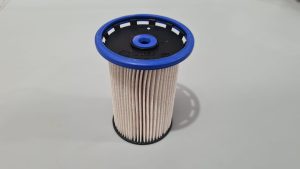
- Sealed filter units: These sealed canisters combine housing and diesel fuel filter media in one piece, replacing the entire diesel filter at once. They’re more often seen in older or heavy-duty vehicles and can include features such as drain bowls or water separation.
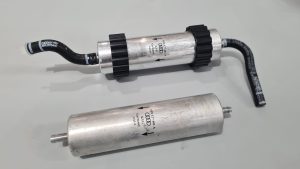
It’s worth mentioning that many diesel systems also feature a coarse strainer inside the tank (part 2 in the diagram), which captures larger debris before it reaches the main filter.
Keeping to your servicing schedule is a key part of preventive maintenance. Without it, you risk higher repair bills, which is the last thing anybody needs.
If you’re unsure when your last service was, it’s worth speaking to an expert for advice.
Diesel fuel filter issues to watch for
If your diesel fuel filter develops a fault, it can trigger a range of problems:
- Clogged strainer: A blocked in-tank strainer makes the lift pump strain harder, creating noise and uneven fuel delivery.
- Water contamination: If the water in the diesel isn’t separated, it can damage injectors and corrode the high-pressure pump, leading to expensive repairs.
- Incorrect installation: Using an unsuitable diesel fuel filter or poor sealing risks leaks, air ingress, or fuel bypassing the filter.
- Filter restriction: A dirty or clogged diesel fuel filter restricts diesel flow to the high-pressure pump, causing reduced power, extended cranking, or a complete no-start.
- Air entry: Damaged seals or poor installation can allow air into the low-pressure side, leading to hesitation, stalling, or long starting times.
However, it’s worth noting that another problem can cause some of these issues, so always seek professional advice if you notice anything wrong with your vehicle.
Are you unsure when your diesel fuel filter was last replaced? Call Smith’s of London, Croydon, today at 020 8674 3377 to book your service.
How often should a diesel fuel filter be replaced?
There isn’t a universal replacement interval or mileage. The correct timing will depend on your vehicle manufacturer’s servicing recommendations and will vary based on your vehicle’s make, model, and year.
Key points to note:
- Correct design & quality: Always use the type of diesel fuel filter specified for your vehicle. Cheap alternatives risk leaks, reduced flow, or poor water separation.
- Water management: Filters with a drain or water sensor should be checked at every service and drained if needed.
- Priming after fitting: Once installed, the diesel fuel system must be primed properly using the vehicle’s pumps or a hand primer. If missed, trapped air can lead to poor starting or even pump damage.
- Reduced effectiveness: ISO testing has shown that new diesel fuel filters separate over 95% of water, which drops to about 70% as they reach the end of service life.
Think your vehicle has a problem? Talk to a professional for peace of mind.
Protecting your diesel system
Having a diesel fuel filter replacement on time is essential to preventative maintenance.
Following your vehicle’s manufacturer guidance, you help protect against severe fuel system problems while keeping performance at its best. Acting now saves you from far more expensive repairs in the future.
When it comes to diesel servicing, choosing the right garage is equally important. This is why many local drivers in Croydon, Beckenham, Coulsdon, and the surrounding areas know they can count on Smith’s of London, Croydon.
Why drivers choose Smith’s of London
Drivers across Croydon, Beckenham and Coulsdon return to us because we offer:
- Diesel servicing is carried out by experienced technicians.
- A 12-month parts and labour guarantee.
- Customer-focused service you can trust.
We’re proud of our {{average-rating}}⭐ Google rating from {{review-count}} satisfied customers across South London.
Keep your vehicle’s diesel fuel filter in top working condition with a service. Call Smith’s of London, Croydon today on 020 8674 3377.
Your diesel fuel filter questions answered
- Can a blocked diesel filter damage the pump?
Yes. A restricted diesel fuel filter starves the pump of fuel, making it strain harder. This can shorten its life or even cause failure, far more expensive than a diesel fuel filter replacement. - Where is the diesel fuel filter located?
The main diesel fuel filter is installed in the low-pressure fuel line between the tank and the high-pressure pump. In most modern cars, it’s found in the engine bay. Many designs also use a coarse strainer in the tank to capture larger debris. - What are the symptoms of a blocked diesel fuel filter?
Typical signs of a blocked diesel fuel filter include poor performance, hesitation under load, extended cranking, or even stalling. In severe cases, the car may fail to start. Expert diagnosis is advised because these symptoms can also point to other issues. - What does a diesel fuel filter do?
Your diesel fuel filter protects your diesel system by removing dirt, particles, and moisture before they can damage injectors or the high-pressure pump. Without it, contaminants can cause wear, corrosion, or blockages, leading to major repairs. - How often should the diesel fuel filter be replaced?
Service intervals vary depending on your vehicle’s make, model and year. Always follow the manufacturer’s recommended schedule for safe replacement.
